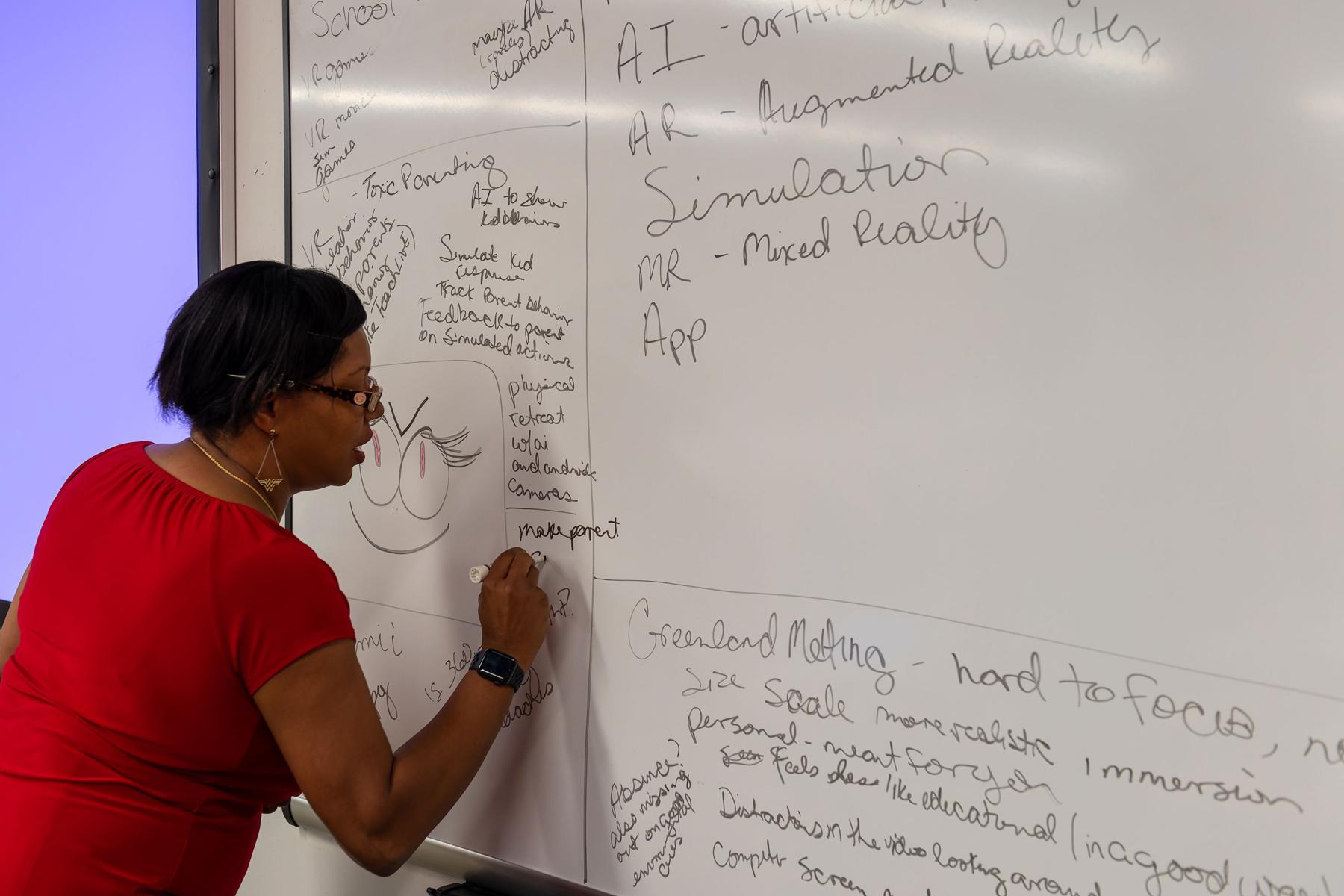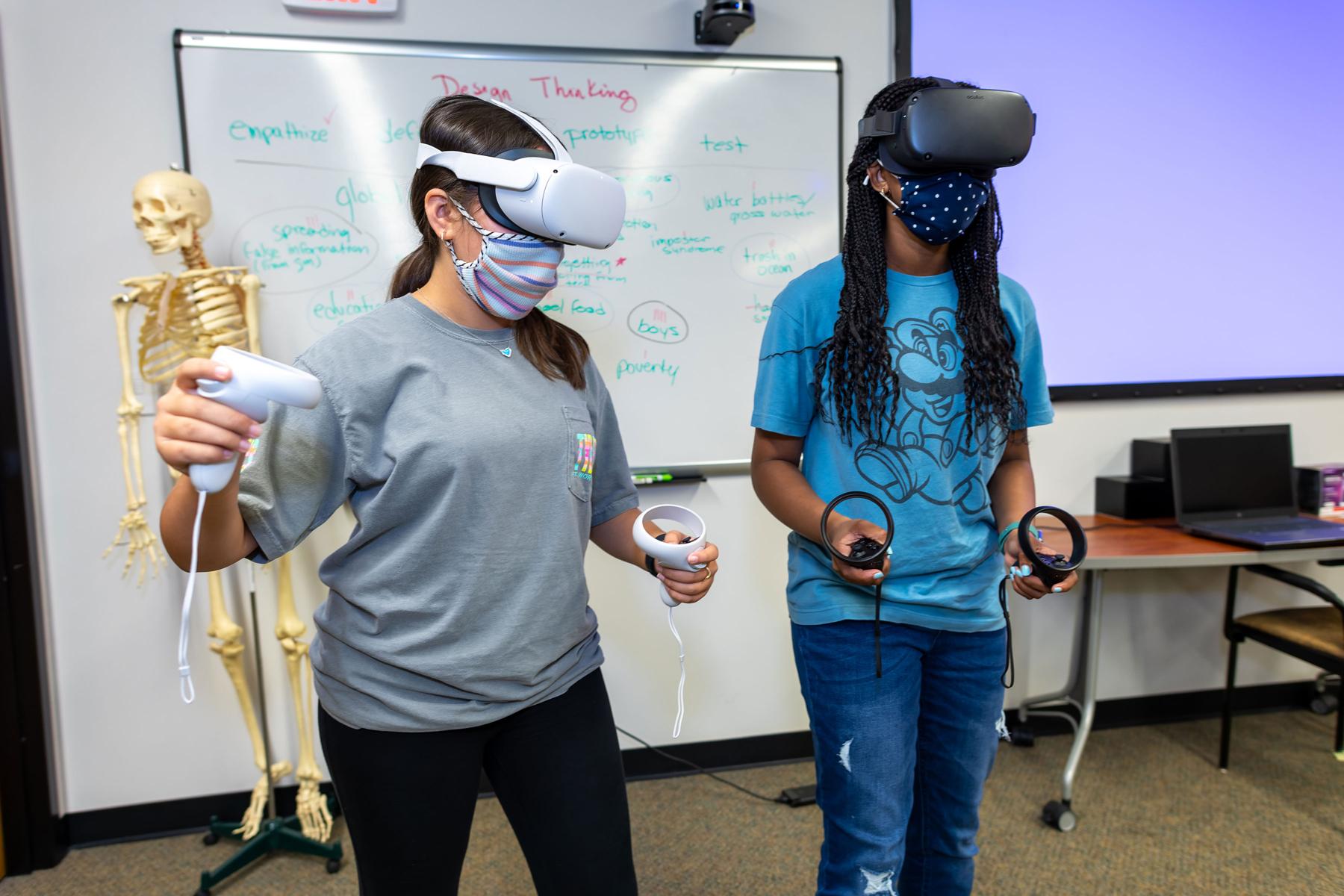t’s the final day of the pilot for UNT’s Girls Surge into STEM XR Camp, but the big ideas are just beginning. Spearheaded by Aleshia Hayes, assistant professor of learning technologies, the event -- made possible by a community action grant from the American Association of University Women (AAUW), which advances gender equity for women and girls through research, education and advocacy -- teaches underrepresented female students in grades 6-12 skills such as user experience (UX) and prototyping. Today, the young participants are excitedly sharing the technology-focused approaches they’ve devised to address what they see as some of society’s most prolific problems.
At New STEM Camp, Ideas Surge
Camp spearheaded by UNT professor offers opportunities for underrepresented girls
in grades 6-12.
Photography by: Michael Clements
July 21, 2021
I
One student’s app would discourage toxic parenting, while another’s VR game would provide players a firsthand foray into the devastation of water pollution -- and, based on better conservation behaviors, allow their environment to return to its previously pristine form. The various concepts have arisen from the week’s deep dive into design thinking, a non-linear, iterative process that teams utilize to understand users, challenge assumptions, redefine problems and create innovative solutions to prototype and test. Together, the girls singled out the matters that most deserve attention -- everything from fossil fuels to online bullying to boys (though they admit they’ve yet to figure out the best way to tackle a puzzle as seemingly unsolvable as the young male mind).
“It’s been really, really fun,” says Addi Gui, a seventh grader from Fort Worth’s Calvary Christian Academy. “I don’t know exactly what I want to do in the future, so I thought this might be a good way to discover new things. The camp has given me new ideas.”
Some of those ideas have sprung from discussions with virtual guest speakers who represent various fields within STEM. They included an entomologist from the University of Denver -- who the students colloquially called “the bug lady” -- as well as Melanie Ecker, an assistant professor of biomedical engineering in UNT’s College of Engineering. The opportunity to hear from these experts exposed the students to opportunities they might have otherwise been unaware of.

Aleshia Hayes, assistant professor of learning technologies, instructs students at
UNT’s Girls Surge into STEM XR Camp.
“On the first day I asked them to write down in one minute as many types of scientists as they could think of, and the most they thought of was three,” says Hayes, an expert in virtual, augmented, mixed and extended reality technologies who is the director of the SURGE (Simulation User Research Game Experience) XR Lab. “We knew we needed to expand their access to STEM and what’s available, but I don’t think we fully realized how much of a chasm exists between what we know as adults at a university and what even the more high-performing students know.”
And the learning has flowed both ways -- working in small groups with middle and high school students allowed Hayes to better understand the hurdles teachers may face when integrating simulation technologies into their classrooms, a key part of her research. It even sparked an idea for a teacher dashboard that could be integrated as part of VR interfaces.
“It’s been great, and I’ve learned a ton,” says Hayes, who will host an expanded three-week version of the camp next summer. “I’m excited about some of the things I’ve discovered here related to my field.”
